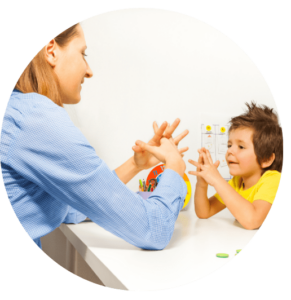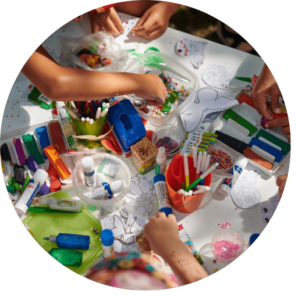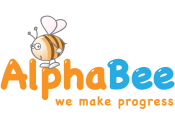Social Skills Groups: Techniques and Approaches
Discover effective Social Skills Groups: Techniques and Approaches for children with autism.

Social skills are a vital part of everyday life...
Social skills are a vital part of everyday life, helping children connect with others, build relationships, and navigate social situations. For children with Autism Spectrum Disorder (ASD), developing these skills can be challenging but incredibly rewarding. At AlphaBee, we offer Social Skills Groups as part of our autism services, designed to help children with ASD and other developmental delays learn and practice these essential skills in a supportive environment. In this blog, we’ll explore what social skills involve, why it matters, and how our programs at AlphaBee may help your child thrive
What Are Social Skills for Autism?
Social skills enable children with ASD to build relationships and participate more fully in their communities. Teaching children with ASD the skills they need to interact successfully with others. These skills include:
- Making eye contact and using appropriate body language.
- Taking turns in conversations and staying on topic.
- Recognizing and responding to emotions in themselves and others.
- Playing cooperatively with peers and resolving conflicts.
At AlphaBee, our Social Skills Groups provide a safe and engaging space for children to learn and practice these skills through guided activities and peer interactions.
Understanding Social Skills
Social skills programs are structured interventions designed to teach children with ASD essential skills for interacting with others. These programs focus on areas such as communication, emotional understanding, and cooperation. For children with ASD, social skills might include basic interaction skills like eye contact and greetings, as well as more complex skills like recognizing emotions and resolving conflicts.
Interventions such as role-playing, social stories, group activities, and visual supports are commonly used to improve social skills in children with ASD. Activities like board games, role-playing games, emotion charades, and group projects can help children practice these skills in a fun and engaging way.
Why Are Social Skills Important for Children with ASD?
Children with ASD often face challenges in social situations, such as difficulty reading social cues, expressing emotions, or understanding others’ perspectives. Social skills interventions may help by:
- Improving communication and building stronger relationships.
- Reducing feelings of isolation or frustration.
- Encouraging participation in group activities at school or in the community.
- Boosting self-esteem and independence.
By focusing on social skills, we aim to help children with ASD feel more confident and comfortable in their interactions.
Key Approaches to Social Skills Development
There are several evidence-based approaches used in social skills development for children with ASD. At AlphaBee, we incorporate the following techniques into our Social Skills Groups:
- Role-Playing: Practicing social scenarios in a safe and supportive environment helps children learn how to respond in real-life situations.
- Social Stories: Short, descriptive stories explain social situations and appropriate responses, making it easier for children to understand expectations.
- Group Activities: Collaborative games and projects encourage teamwork, turn-taking, and communication.
- Visual Supports: Visual aids, such as charts or pictures, help children remember social rules and steps.
- Positive Reinforcement: Praise and rewards motivate children to practice and use their new skills.
These approaches are tailored to each child’s unique needs, ensuring they receive the support they need to succeed.
What to Expect in AlphaBee’s Social Skills Groups
Our Social Skills Groups are designed to provide a fun and engaging learning environment for children with ASD. Here’s what you can expect:
- Small Group Settings: Children work in small groups to ensure personalized attention and meaningful interactions.
- Structured Activities: Each session includes guided activities that focus on specific social skills, such as sharing, listening, or problem-solving.
- Peer Interaction: Children have the opportunity to practice their skills with peers, helping them build confidence and form lasting friendships.
- Parent Involvement: We provide resources and strategies for parents to reinforce social skills at home.
Our goal is to create a positive and nurturing space where children can grow, build meaningful connections, and develop friendships that last.
How AlphaBee Can Help
At AlphaBee, we are committed to helping children with ASD develop the social skills they need to thrive. Our Social Skills Groups are led by trained professionals who use evidence-based techniques to create a supportive and engaging learning environment. By focusing on each child’s unique strengths and challenges, we aim to help them build confidence, form meaningful connections, and navigate social situations with ease.
Our programs are designed not only to teach social skills but also to foster lasting friendships. We believe that strong, positive relationships are key to a child’s happiness and success.

Social Skills Groups may help children with ASD improve their communication, build relationships, and feel more confident in social settings. At AlphaBee, we are here to support you and your child every step of the way. If you’re interested in learning more about our Social Skills Groups, visit our Social Skills Groups page or contact us today.
Together, we can help your child unlock their full potential and build friendships that last a lifetime.

